- الاشتراك في النشرة البريدية
النشرة الاسبوعية
سجل كي تصل، مختارات مما تقدمه "المجلة" مباشرة الى بريدك الالكتروني كل يوم اثنين.

تنوعت تغطية "المجلة" هذا الأسبوع بالأحداث والتطورات السياسية والاقتصادية في الشرق الأوسط والعالم، حيث تابعت أبرز المستجدات الإقليمية والدولية وقدّمت تحليلات معمّقة لمجريات المشهد السياسي. كما أولت اهتماما خاصا بالاحتفاء بشهر رمضان المبارك من خلال نشر سلسلة مقالات متنوعة. كذلك أفردت تغطية خاصة للتحولات الجارية في الضفة الغربية، محللةً أبعادها السياسية والإنسانية وانعكاساتها على المشهد العام في المنطقة.
واحتفالا بيوم التأسيس السعودي، كتب عبدالله فيصل آل ربح: "جذور الاستمرارية السياسية نحو القرن الثالث"، ولفت إلى أنّ "الدرعية وتوطيد أركان الحكم فيها لم يكن حدثا عارضا، بل مثّل تتويجا لسيرورة تاريخية ممتدة بدأت باستقرار بني حنيفة في منطقة اليمامة على ضفاف وادي حنيفة"، واعتبر أنّ "التأسيس لا يمثل واقعة زمنية منتهية تُستعاد كذكرى جامدة. بل هو صيرورة ديناميكية من النمو والتراكم المؤسسي القادر على مواكبة تحولات العصر".
وبهده المناسبة نشرت "المجلة" أول مقتطفات حصرية من ذكريات الرئيس السوري الأسبق شكري القوتلي وعلاقته بالملك عبد العزيز، حيث يخصص الرئيس شكري القوتلي في كتابه "أحداث وذكريات" الذي يصدر قريبا، أربعة فصول عن علاقته بالسعودية والملك عبد العزيز، تتضمن تفاصيل تُكشف للمرة الأولى، نشرتها "المجلة" في ذكرى يوم التأسيس السعودي.
وفي السياسة أيضا، نشرت "المجلة" سلسلة مقالات تناولت التحوّلات الجارية في الضفة الغربية المحتلة وغزة، ضمن قراءة سياسية وميدانية متعمقة للمشهد الفلسطيني وتداعياته الجيوسياسية، حيث كتب أحمد ماهر: "لحظة مفصلية في الضفة الغربية... إسرائيل تحوّل المستوطنين إلى مشترين". كذلك كتب مالك العثامنة مقالا بعنوان: "سياق إقليمي متحول... حسابات الأردن في الضفة الغربية". أما سالم الريّس فكتب: "ما لا يُرى في صور غزة... فلسطينيون بلا هوية ولا أوراق ملكية".
من جهة أخرى، كتب محمد الشرقي مقالا بعنوان: "هل تنجح أميركا بالتطبيع بين الجزائر والمغرب... وإنهاء نزاع الصحراء؟"، لفت فيه إلى أنّ "اصطدم واشنطن بواقع على الأرض غير مساعد، يعكسه التوتر في العلاقات بين الجزائر والمغرب، وتتجلى تداعياته في سباق رهيب للتسلح، قدّره (معهد السلام الدولي) في استكهولم بنحو 60 مليار دولار عام 2026".
"الحوار مع الصين وإيران عبر باكستان... قراءة من منظور قوة متوسطة" عنوان مقال للكاتب كمال علام، تحدث فيه عن "باكستان كدولة قوة متوسطة تحتاج إلى أن تعمل كجسر في صراعات شاقة مثل إيران، وأن تقرّب بين قوى أكبر مثل الصين والولايات المتحدة".
أما عمر أنهون فكتب مقالا بعنوان: "سوريا بعد تبدّل الحسابات الأميركية… قراءة في مسار جديد للمكون الكردي"، واعتبر أنّ "المسار المقبل سيعتمد إلى حد كبير على كيفية تنفيذ الاتفاقات بين دمشق و"قوات سوريا الديمقراطية"، رغم استمرار التباين في تفسير بنودها".
من جهته، كتب مايكل هراري: "خط أنابيب الغاز العربي كمبادرة دبلوماسية إقليمية"، ولفت إلى أنّ "خط أنابيب الغاز العربي يوفّر أداة عملية ليس فقط على صعيد التعاون في مجال الطاقة، بل وربما- وهو الأهم- على مستوى الاستراتيجيات الإقليمية والدبلوماسية".
وفي الاقتصاد، كتب عبد الفتاح خطاب: "اقتصادات الخليج تغرد خارج أسوار الطاقة"، معتبرا أن "النفط لم يعد القصة الرئيسة في دول الخليج، فالمستقبل ترسمه الابتكارات والسياسات المرنة والسوق الموحدة".
من جهة أخرى، كتبت ثريا شاهين: "عين ترمب على ثروات إيران... النفط مقابل السلام؟"، مؤكدة أنّ "الملف الإيراني لم يعد يُقرأ من زاوية النووي وحده، إذ طرح النفط الإيراني والثروات الطبيعية الاستراتيجية لإيران على طاولة المفاوضات، كبوابة للتوصل إلى اتفاق سلام أو تأجيل الصدام".
في "ثقافة ومجتمع"، خصصت "المجلة" سلسلة مقالات متنوعة تناولت "خريطة مسلسلات رمضان في 2026.. من الدراما الخليجية إلى الأعمال المصرية والسورية والعراقية والمغربية".
وعن شهر رمضان المبارك عبر العصور، كتبت ياسمين عبدالله: "عجائب وغرائب من سير الشهر الفضيل المنسية".
ومن جهته، كتب حسام معروف: "رمضان في غزة... موائد مزدحمة بذكرى الراحلين ومحاولات فرح تتحدى الألم".
وفي "علوم وتكنولوجيا"، كتبت أليس غاور: "السوشيال ميديا والمجتمع... الرعاية بدل الوصاية"، حيث "تقوم الحوكمة الرشيدة لوسائل التواصل الاجتماعي على مبدأ الرعاية المتبصرة أكثر من قيامها على منطق السيطرة". وتساءلت: "لماذا يتقدم الضبط الذكي على التقييد الشامل؟".
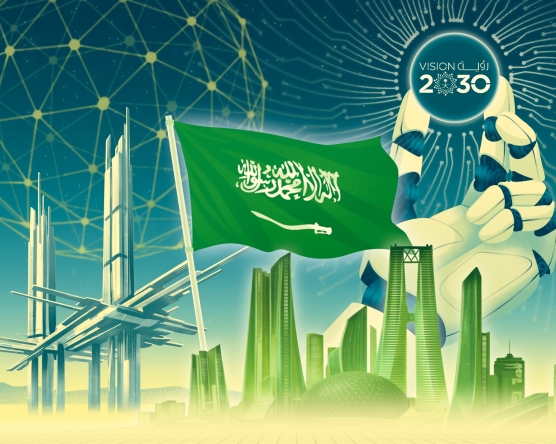
يوم التأسيس السعودي... جذور الاستمرارية السياسية نحو القرن الثالث
التأسيس لا يمثل واقعة زمنية منتهية تُستعاد كذكرى جامدة. بل هو صيرورة ديناميكية من النمو والتراكم المؤسسي القادر على مواكبة تحولات العصر
تشكل الدرعية وتوطيد أركان الحكم فيها لم يكن حدثاً عارضاً، بل مثّل تتويجاً لسيرورة تاريخية ممتدة بدأت باستقرار بني حنيفة في منطقة اليمامة على ضفاف وادي حنيفة
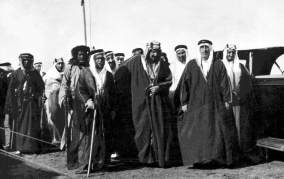 وثائق ومذكرات
وثائق ومذكرات
"المجلة" تنشر أول مقتطفات حصرية من ذكريات الرئيس السوري شكري القوتلي وعلاقته بالملك عبد العزيز
يخصص الرئيس شكري القوتلي في كتابه "أحداث وذكريات" الذي يصدر قريبا، أربعة فصول عن علاقته بالسعودية والملك عبد العزيز، تتضمن تفاصيل تُكشف للمرة الأولى، تنشرها "المجلة" في ذكرى يوم التأسيس السعودي
لندن - "المجلة"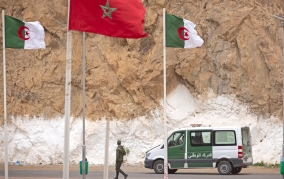 سياسة
سياسة
هل تنجح أميركا بالتطبيع بين الجزائر والمغرب... وانهاء "نزاع الصحراء"؟
تصطدم واشنطن بواقع على الأرض غير مساعد، يعكسه التوتر في العلاقات بين الجزائر والمغرب، وتتجلى تداعياته في سباق رهيب للتسلح، قدره "معهد السلام الدولي" في استكهولم بنحو 60 مليار دولار عام 2026
محمد الشرقي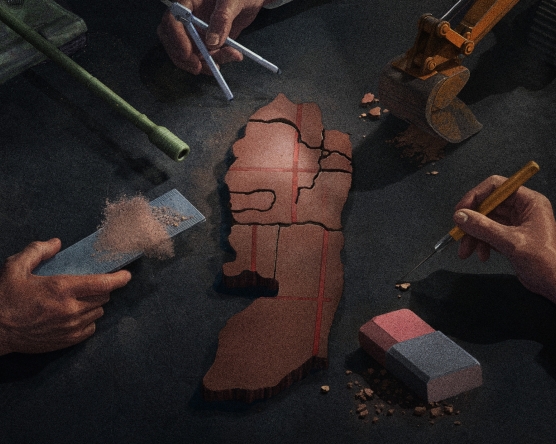
الضفة الغربية وغزة... "هندسة الأرض" بحسابات إسرائيلية
تنشر "المجلة" سلسلة مقالات تتناول التحوّلات الجارية في الضفة الغربية المحتلة وغزة، ضمن قراءة سياسية وميدانية متعمقة للمشهد الفلسطيني وتداعياته الجيوسياسية
لندن - "المجلة"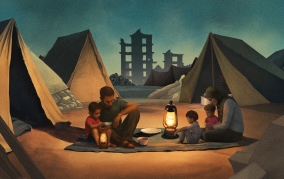 ثقافة ومجتمع
ثقافة ومجتمع
رمضان في غزة… موائد مزدحمة بذكرى الراحلين ومحاولات فرح تتحدى الألم
في ظل تشرذم معظم سكان القطاع في مخيمات أو بين البيوت المتضررة، بات من الصعب استعادة طقوس شهر رمضان، إلا أن التحدي الأكبر يبقى أنه ليس ثمة عائلة واحدة من عائلات غزة لم تفقد عزيزا خلال الحرب.
حسام معروف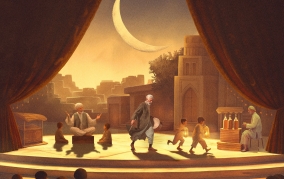 ثقافة ومجتمع
ثقافة ومجتمع
رمضان عبر العصور... عجائب وغرائب من سير الشهر الفضيل المنسية
يظل رمضان عبر الزمن شاهدا على اجتماع الأضداد، إذ امتزجت قدسية الشعائر بطرائف السلوك الإنساني وغرائبه، لتصوغ ذاكرة فريدة تمزج فيها أيام الشهر الفضيل بين الخشوع وبين العجائب والغرائب.
ياسمين عبدالله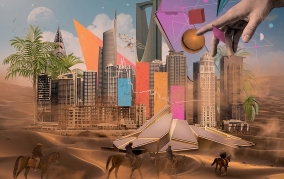 اقتصاد وأعمال
اقتصاد وأعمال
اقتصادات الخليج تغرد خارج "أسوار" الطاقة
لم يعد النفط القصة الرئيسة في دول الخليج، فالمستقبل ترسمه الابتكارات والسياسات المرنة والسوق الموحدة.
عبد الفتاح خطاب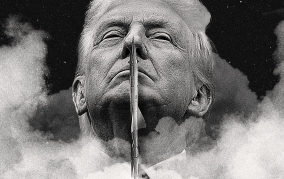 اقتصاد وأعمال
اقتصاد وأعمال
عين ترمب على ثروات إيران... "النفط مقابل السلام"؟
لم يعد الملف الإيراني يقرأ من زاوية النووي وحده، إذ طرح النفط الايراني والثروات الطبيعية الاستراتيجية لايران، على طاولة المفاوضات كبوابة للتوصل إلى اتفاق سلام أو تأجيل الصدام.
ثريا شاهين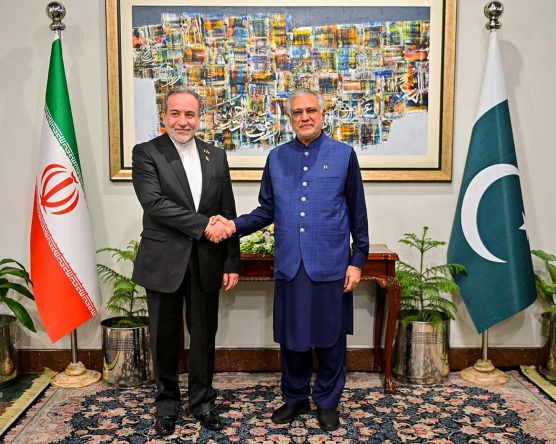
الحوار مع الصين وإيران عبر باكستان... قراءة من منظور قوة متوسطة
شكرت إيران باكستان علنا في الآونة الأخيرة على دورها في تخفيف التوتر خلال حرب الاثني عشر يوما في الصيف، وكذلك خلال التوترات الأخيرة منذ بداية الاحتجاجات
كمال علام
